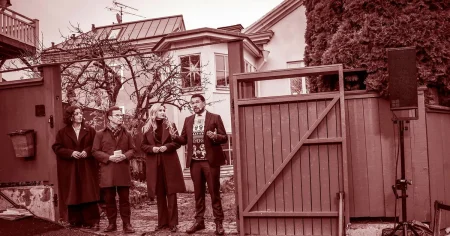Paragraph 1: Andersson’s Advantage and the Illusion of Kristersson’s Coalition Victory
Recent polls reveal a public appetite for change in the Swedish government, with a significant portion favoring Magdalena Andersson as Prime Minister over Ulf Kristersson. Furthermore, Andersson’s party, the Social Democrats (S), are perceived as embodying "governing competence." This strong public standing provides Andersson with a significant advantage, even without a formally presented coalition alternative. The prevailing narrative that Kristersson’s 2022 victory stemmed from a unified right-wing coalition, while Andersson lacked such consolidation, is a mischaracterization. The Social Democrats had governed for eight years amidst escalating gang violence and record inflation. Kristersson’s slim two-mandate victory was less a triumph of coalition building and more a reflection of predictable voter fatigue with the incumbent government.
Paragraph 2: The Strategic Folly of Embracing the Left
The suggestion that Andersson should have embraced closer ties with the Left Party (V) and the Green Party (MP) in the previous election is misguided. These parties faced widespread disapproval, particularly on key issues like energy, crime, and defense – the very issues that dominated the 2022 election cycle. Andersson’s relative success stemmed from maintaining a strategic distance, positioning herself in the political center. Burdening her campaign with the unpopularity of the Left and Green parties would have likely resulted in a worse outcome. The Left Party’s ongoing struggles with antisemitism further underscore the risks of such an alliance. The Green Party, while under new leadership and adopting a more pragmatic approach, still carries baggage from its past performance.
Paragraph 3: The Benefits of a Centrist Approach and the Power of Potential
Andersson’s current strategy of keeping her options open, rather than prematurely committing to a specific coalition, is both strategically astute and politically sound. A centrist approach, potentially involving collaboration with the Moderates (M), holds the promise of more effective long-term solutions for pressing issues like energy, defense, and gang violence. This cross-aisle cooperation could foster stability and consensus-building, generating more durable policy outcomes. Moreover, Andersson doesn’t need a pre-election coalition agreement to solidify her credibility as a prime ministerial candidate. The public understands that if the current government loses favor, Andersson will likely be able to assemble a governing coalition. Her past success, and the Social Democrats’ proven pragmatism when it comes to securing power, reinforces this perception.
Paragraph 4: The Löfven Legacy: A Cautionary Tale of Power without Vision
While securing power is crucial, the true test lies in effectively wielding it. Stefan Löfven’s eight years as Prime Minister offer a cautionary tale. Despite holding power, his tenure was marked by limited substantive achievements. This wasn’t due to a constant "right-wing majority" blocking his agenda, as some Social Democrats claim, but rather a lack of bold, innovative ideas. While Löfven did recognize the importance of nuclear power and secured a cross-party agreement on its future, his overall record lacked vision. Sweden cannot afford another era of such unimaginative leadership.
Paragraph 5: The Importance of a Visionary Agenda for the Future
Andersson must avoid repeating Löfven’s mistake. Simply acquiring power is insufficient. She needs a compelling vision for Sweden’s future, a concrete plan to tackle critical challenges and capitalize on opportunities. This requires more than just political maneuvering and coalition building. It demands innovative policy proposals, a clear articulation of her priorities, and the ability to inspire public confidence in her leadership. The focus should not be solely on ousting the current government, but on presenting a clear alternative, a compelling reason for voters to entrust her with the reins of power.
Paragraph 6: Beyond Coalition Building: The Need for Substantive Policy Innovation
The debate surrounding Andersson’s potential coalitions often overshadows a more fundamental question: what will she do with power if she regains it? The public needs reassurance that a new Social Democratic government will offer more than just a reshuffling of political alliances. Andersson must articulate a bold and innovative policy agenda that addresses the pressing concerns of the Swedish people. This includes concrete solutions for rising crime, a sustainable energy future, and a robust defense strategy. The focus should shift from tactical political maneuvering to substantive policy proposals, demonstrating a clear vision for a better future for Sweden. Ultimately, it’s not just about who governs, but how they govern, and what they achieve while in power.














